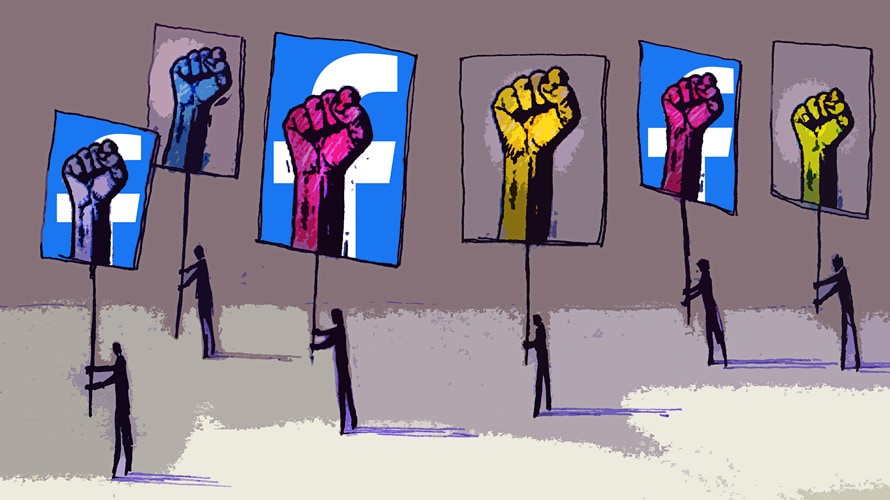
Facebook’s latest response to the ongoing debate over how it should handle political advertising and false information in political ads and content is putting more controls in the hands of users.
Director of product management for ads Rob Leathern echoed the philosophy shared by CEO Mark Zuckerberg late last year, saying in a Newsroom post Thursday that Facebook does not believe decisions about political ads should be made by private companies and calling for legislation on the matter, both in the U.S. and internationally.
Leathern addressed Facebook’s policy of not fact-checking content from politicians, writing, “We have based (our policy) on the principle that people should be able to hear from those who wish to lead them, warts and all, and that what they say should be scrutinized and debated in public.”
Bill Russo, deputy communications director for former Vice President Joe Biden’s presidential campaign, was unimpressed, saying in a statement, “Donald Trump’s campaign can (and will) still lie in political ads. Facebook can (and will) still profit off it. Today’s announcement is more window dressing around their decision to allow paid misinformation.”
Fellow 2020 presidential candidate Sen. Elizabeth Warren (D-Mass.) weighed in via Twitter: “Facebook is paying for its own glowing fake news coverage, so it’s not surprising that they’re standing their ground on letting political figures lie to you. Facebook needs real competition and accountability so that our democracy isn’t held hostage to their desire to make money.”
Her tweet referenced a controversy earlier this week in which Teen Vogue published a story about Facebook’s election integrity efforts without a branded content label, eventually added one and then wound up deleting the story altogether.
The social network will begin rolling out a feature later in January that enables people to choose how advertisers can reach them with its custom audiences targeting tools, which use anonymized, hashed data such as users’ email addresses and phone numbers.
The new control will apply to ads on all topics, and it will give people the option of no longer seeing ads based on an advertiser’s custom audience from a list or, conversely, to see ads if advertisers used lists to exclude them.
Facebook will also add a control to its Ad Preferences menu, giving people the power to opt to see fewer political and issue ads on the social network and its Instagram photo- and video-sharing network.
Federal Election Commission commissioner Ellen Weintraub ripped into Facebook in a series of tweets, saying, “Facebook’s weak plan suggests that the company has no idea how seriously it is hurting democracy. No one is a bigger believer in transparency than I. But here, proposing ‘transparency’ solutions is window-dressing when Facebook needs to be putting out the house fire it has lit.”
Weintraub added, “I am not willing to bet the 2020 elections on the proposition that Facebook has solved its problems with a solution whose chief feature appears to be that it doesn’t seriously impact the company’s profit margins … I strongly urge Facebook to go back to the drawing boards and come back with something much more robust. This will not do.”
Twitter CEO Jack Dorsey said late last October that his company would no longer accept political ads, and a more formal policy was introduced the following month, while Google revealed last November that political advertisers were limited to targeting audiences based on age, gender, general location and postal code.
Leathern addressed the moves by both of those companies, saying that Facebook opted for transparency and controls over outright bans or limited targeting, and adding, “Unlike Google, we have chosen not to limit targeting of these ads. We considered doing so, but through extensive outreach and consultations, we heard about the importance of these tools for reaching key audiences from a wide range of NGOs (nongovernmental organizations), nonprofits, political groups and campaigns, including both Republican and Democrat committees in the U.S.”
https://www.adweek.com/digital/facebook-continues-to-resist-calls-to-limit-political-advertising-fact-check-content/

